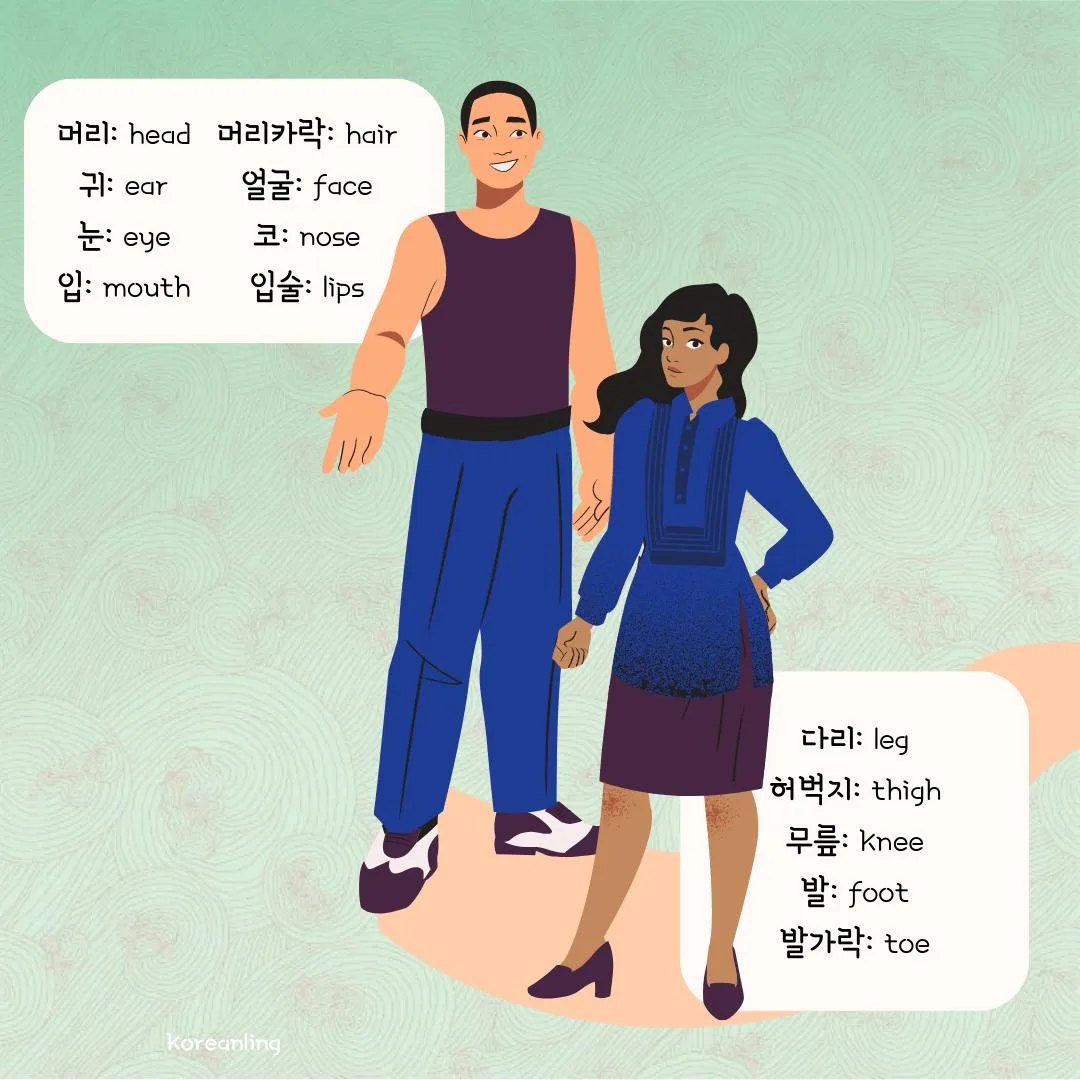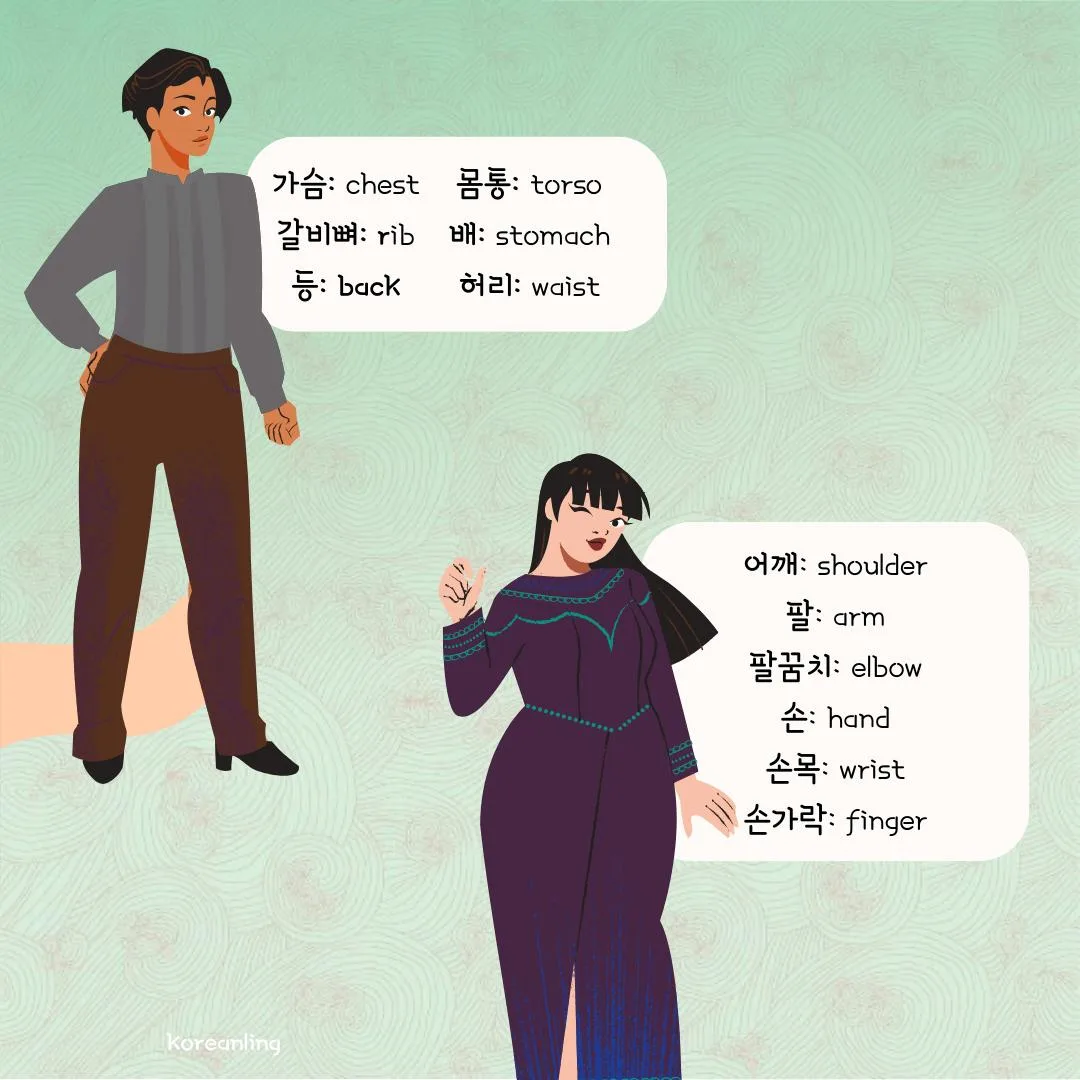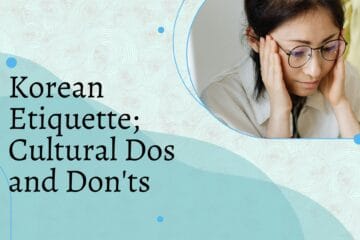Let’s get into a quick Korean body vocab list “머리부터 발끝까지” from head to toe! This is expanding out on looks and appearance in Korean like my post with age, weight, hair, eye color, etc. over here. Again I’ll include some sentences in Korean with the new vocab to help you start putting some together yourself. So let’s start with body parts in Korean:
몸: body
신체: body (more formal, Sino-Korean (身體) 몸 which is native)
뒤: back/behind
앞: front


Head Vocab
머리: head
머리카락: hair
귀: ear
얼굴: face
눈: eye
눈썹: eyebrow
코: nose
입: mouth
입술: lips
목: neck
머리가 아파요: My head hurts.
귀가 큰 고양이는 말썽꾸러에요: A cat with big ears is a troublemaker.
그는 파란색 눈을 있다: They have blue eyes.
Torso Vocab
가슴: chest (everyday word)
유방: chest (more medical)
갈비뼈: Rib
등: back
몸통: torso
배: stomach
옆구리: side
허리: waist/lower back
골반: pelvis
강아지는 등에 누워 있어요: The puppy is lying on their back.
효과적인 가슴 운동 루틴을 알려드릴게요: I’ll tell you an effective chest exercise routine.
Arm Vocab
어깨: shoulder
팔: arm
겨드랑이: armpit
팔꿈치: elbow
손: hand
손목: wrist (lit: hand neck)
손바닥: palm
손가락: finger
손톱: fingernail
엄지: thumb
우리 여자친구와 손을 잡고 싶어: I want to hold my girlfriend’s hand.
어깨넓이 몇이길래?: What’s your shoulder width?

Leg Vocab
엉덩이: butt
다리: leg
허벅지: thigh
무릎: knee
정강이: shin
종아리: calf
발목: ankle (lit: foot neck)
발: foot
발가락: toe
발톱: toenail
발바닥: sole (of the foot)
그는 갑자기 다리에 쥐가 났어요: He suddenly got a leg cramp.
발가락 부딪혔을때 아팠에요: It hurt when I hit my toe.
A thing to note is that “아파다” or hurt is used both for pain and for sickness, so saying something like “몸이 아파요” or my body hurts can mean ‘I’m sick’. You can mostly figure it out by context; like saying “팔이 아프요” just means your arm hurts because an arm can’t be sick.
For more, you can see that over here I got more into the internal and external organs. But for now, I hope this Korean body vocab helps you better express yourself and talk about your body and others!



2 Comments
Dax · January 16, 2024 at 9:41 pm
I love that you included the literal “손목: wrist (lit: hand neck)”. It reminds me of Chinese. Do the original characters in Hanja relate to the Chinese characters for hand and neck? In Chinese it’s 手腕 (Shǒu wàn). Awesome post!
Pam · January 17, 2024 at 12:51 pm
Thanks! From what I can see both 손 and 목 are native Korean words and do not come from Hanja